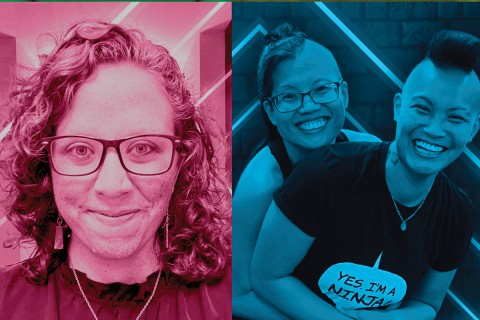Vermont is fourth state to approve gay marriage: Also first to allow same-sex civil unions
Nine years after becoming the first state to allow same-sex civil unions, Vermont has become the first state to approve same-sex marriage without a court order.
The Vermont House on April 7 overrode an earlier veto by Governor Jim Douglas in a 100-49 vote, following a lopsided veto override by the state Senate. Vermont becomes the fourth state—and the second in a week—to allow gay marriage, joining Massachusetts, Connecticut and Iowa.
On the same day, the District of Columbia took the first step toward recognizing same-sex marriages performed in other jurisdictions, a move that some predict may ultimately lead to legalized gay weddings in the nation’s capital.
Gay rights groups said the Vermont decision—particularly its lack of a court mandate—will no doubt have ramifications in other states. California lawmakers, for example, have twice passed gay marriage bills that were vetoed by Gover nor Arnold Schwarzenegger.
The California Supreme Court, which is considering whether to affirm last November’s contentious Proposition 8 victory rejecting gay marriage, has been thought to be leaning toward validating thousands of same-sex marriages briefly legalized last year while also favoring the voters’ verdict to reinstate the ban.
Several other state legislatures are considering gay marriage measures, including those in Maine, New Hamp shire, New York and New Jersey.
The national head of Integrity, the Episcopal Church’s gay advocacy network, cheered the recent developments. “We hope the actions in Vermont today will give courage to the California Supreme Court to stand on the right side of history,” said Susan Russell, a senior associate pastor at All Saints Episcopal Church in Pasadena, California.
Leaders of the United Church of Christ and the Unitarian Universalist As sociation, which both officially support gay marriage, hailed the Iowa Supreme Court’s unanimous April 3 ruling and the Vermont legislation. The Cleveland-based UCC pointed to its large presence in the two states as well as noting that in 2000 then-governor Howard Dean, a UCC member, urged Vermont to offer civil unions to same-sex couples.
Conservatives, meanwhile, criticized the Vermont vote.
“While government officials may change definitions, they cannot change nature,” said Wendy Wright, president of Concerned Women for America. “The first human relationship was between one man and one woman, and it became the foundation of all society.”
In a similar vein, attorney Austin R. Nimocks of the Alliance Defense Fund, which opposed the same-sex marriage measure in Vermont, told Baptist Press that the legislature “made a profound social policy statement that mothers and fathers are not necessary for the family, and that the sex of a parent doesn’t matter.”
In Washington, the District of Colum bia City Council unanimously approved a bill that would recognize same-sex marriages performed in other states and countries. The bill still needs a second approval vote from the 13-member council, approval by Mayor Adrian Fenty and congressional review before it can become law. The District already has a domestic partner registry.
“It’s high time we send a clear, unequivocal message to those persons of the same sex and married in another jurisdiction that their marriage is valid in D.C.,” said council member Jim Graham, an openly gay Democrat, according to the Washington Post.





